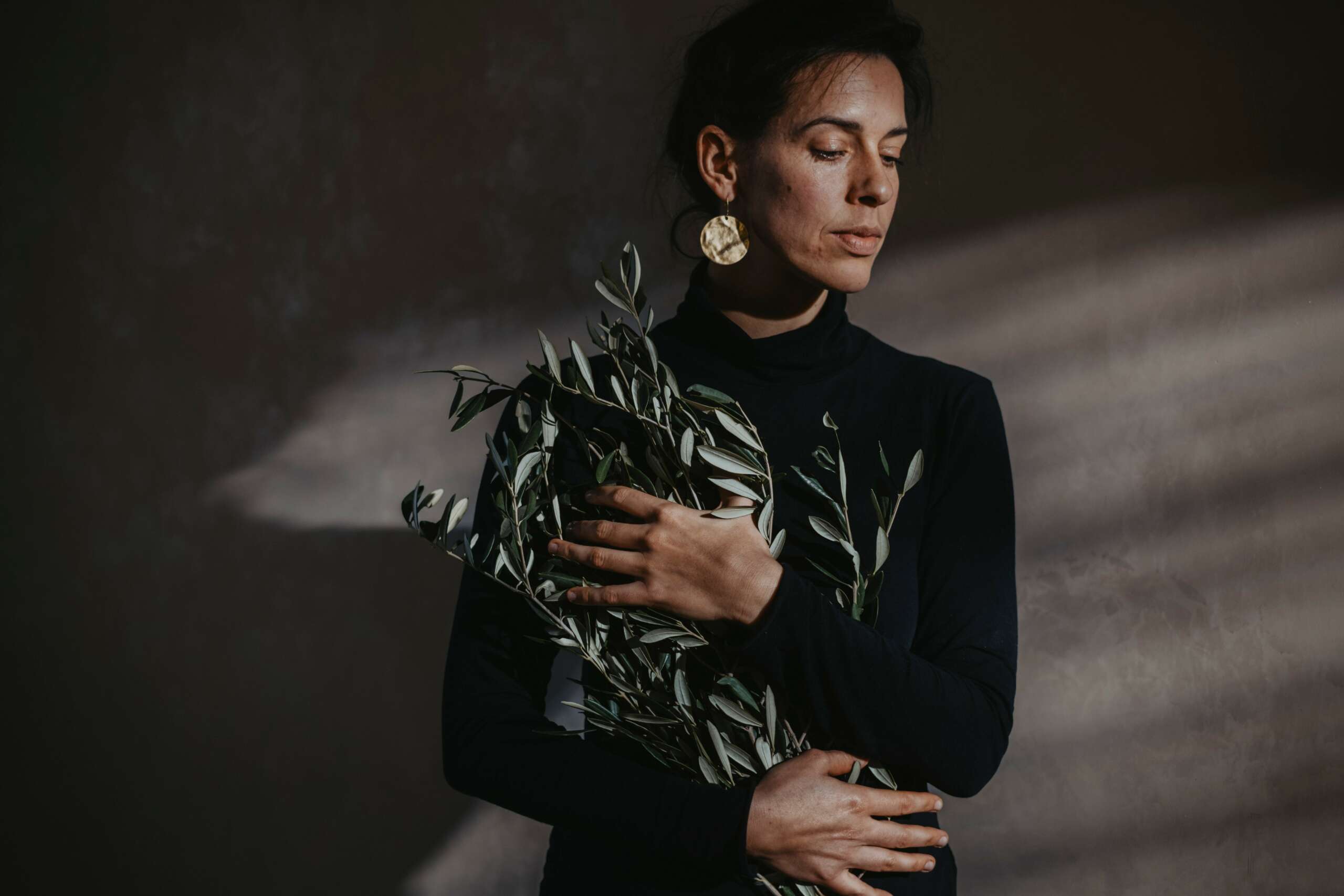We recently connected with Insa Verbeck and have shared our conversation below.
Alright, Insa thanks for taking the time to share your stories and insights with us today. We’d love to hear the backstory behind a risk you’ve taken – whether big or small, walk us through what it was like and how it ultimately turned out.
Awwwww, what an intriguing question to begin with. The word “RISK” already is glittering in my mind, tempting, and magnetic. In fact, few things thrill me more than what my friend Connie calls the “unknown Unknown”. The truly new territory. The process that exceeds all anticipation.
Over the last couple of years these leaps into the unknown have turned from a personal necessity into a daily practice.
In a way this is surprising. For I used to be a controller of sorts. I could blame this on the heavily emphasized Scorpio-part of my birth-chart. My loving but very conservative and safety-orientated upbringing. Whatever the reason, I tended to control me and my life in such ways that I created painful situations of total stagnation and complete paralyzation.
To break free from these home-made blockages I had to take risks that even to me seem big in hindsight. Such as moving from Berlin to a valley high in Alps with nothing than a lemon tree and one suitcase. Such as giving up my prosperous academic career to work as a Gardener. Such as leaving the Garden and quitting all side-jobs to entirely focus on my creativity, growth, and healing.
The truth is: I am still a big fan of control and safety. But it is also true that my friends and colleagues describe me as a person that takes enormous risks both personally and professionally. My teaching, my practice, my mentoring, my whole life is reaching for the unknown Unknown. The difference is that today, make sure to ground, to center, to rest and to fully embody before and after my leaps.
In this these perceived “risks” rather feel like Acts of Trust that I perform with personal curiosity and professional consistency.
In a way they remind me of sowing in the garden in early spring. As winter’s chills are still lingering and the soil seems barren we must literally let go of the precious seeds to initiate a process of growth and transformation that will unfold beyond our imagination.
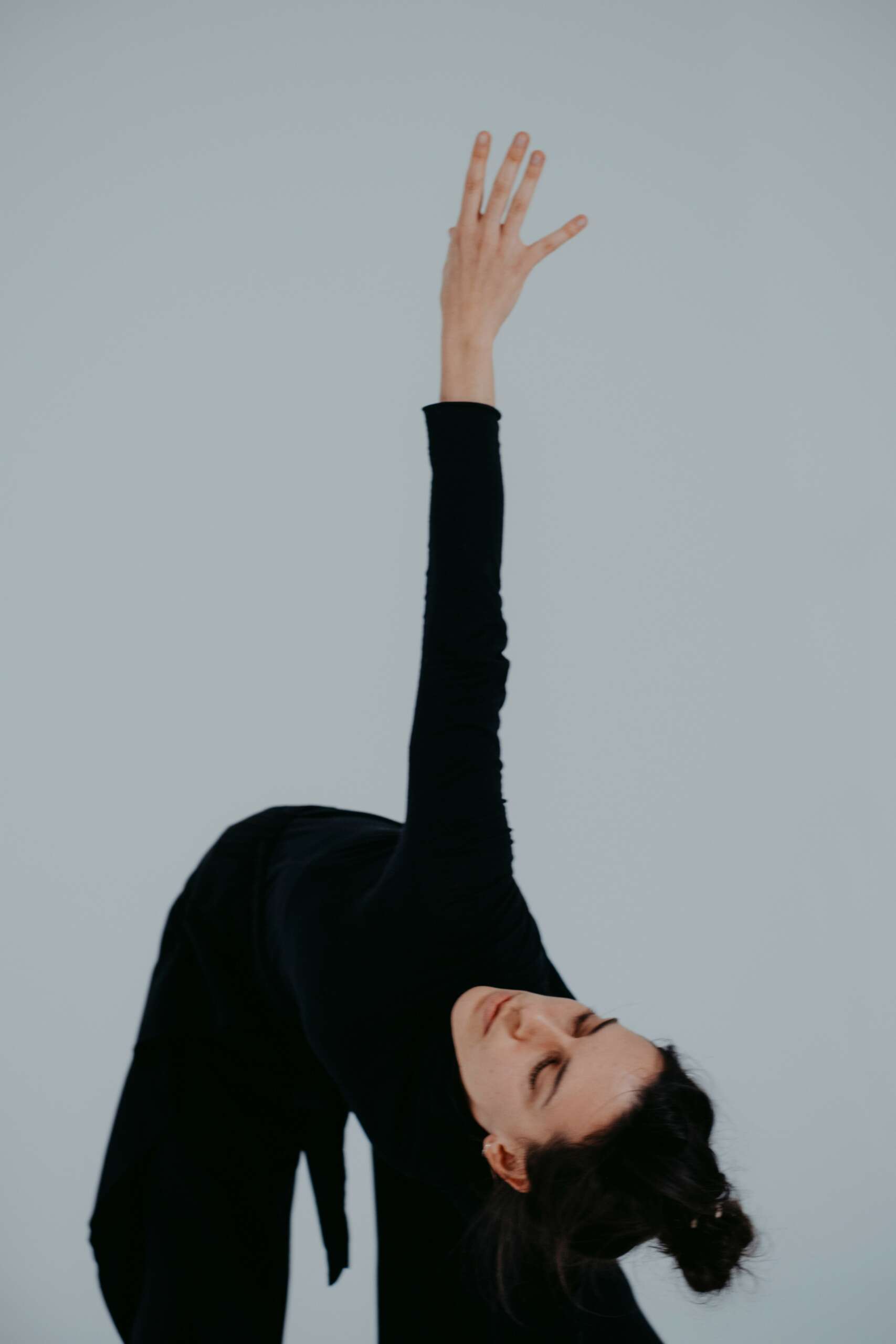
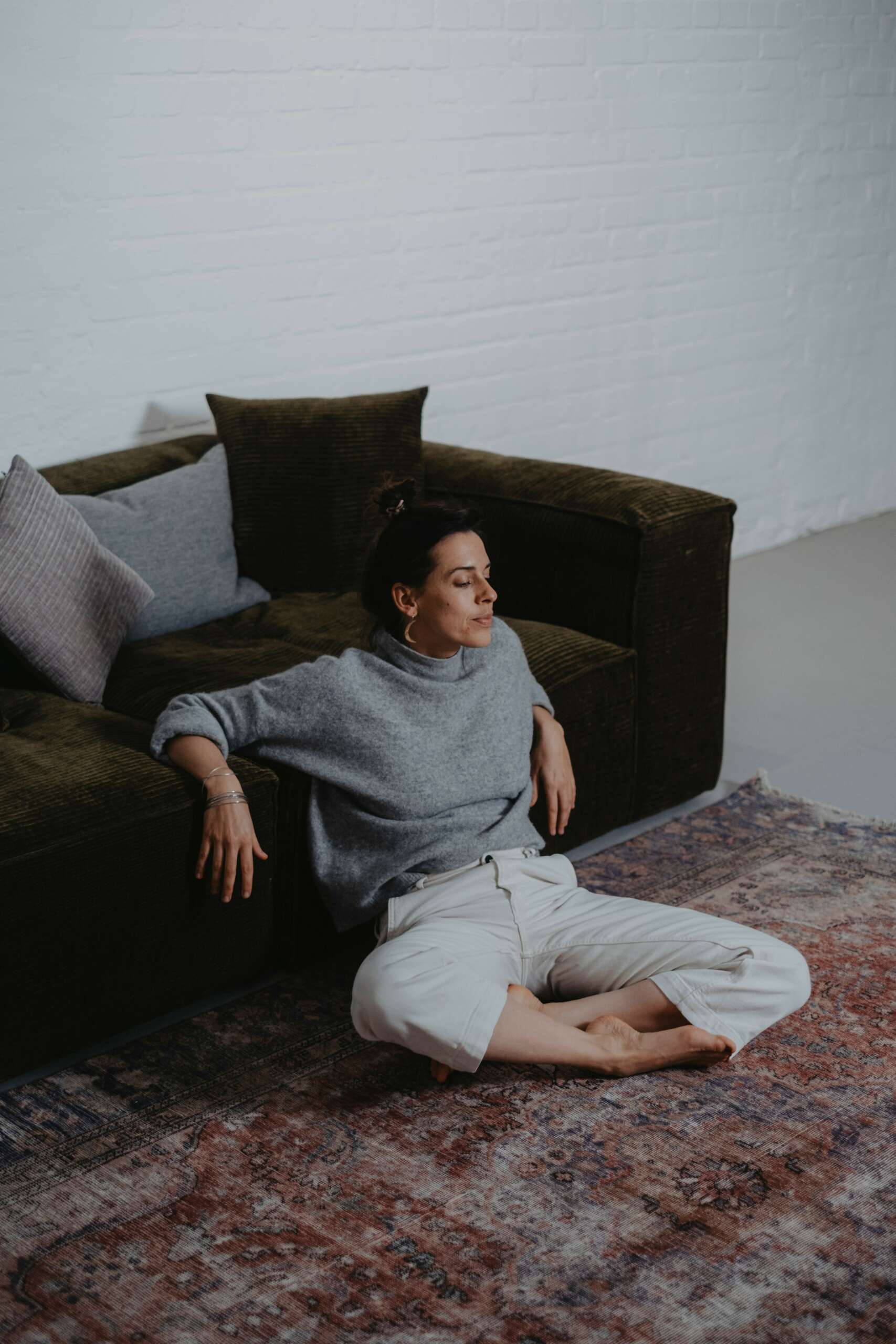
Awesome – so before we get into the rest of our questions, can you briefly introduce yourself to our readers.
I support people in their unraveling, transformation, and growth.
My work is dedicated to helping people reconnect with their core and to live and act from a place of essential alignment. We experience this essential alignment as a state of health, joy, stability, and ease. The path that leads to this state is called Healing.
My own journey of reconnection started when a severe crisis and disease interrupted my academic career and set me on a transformative path that led me from Berlin to a remote valley high in the alps. There, I started working as a gardener and dedicated several years to exploring the fundamental principles of cyclical growth, transformation, and nature’s tendency to heal itself and thrive after states of crisis.
When I moved to the alps and landed in the Garden, I thought of it as the ultimate destination of my life’s journey. As it turned out it wasn’t the ending, but rather the beginning of my life and all the things that define my work today.
Alongside my embodied research in the Garden, I developed a holistic movement practice that I currently teach in Germany and Switzerland. Here I am drawing from my dance education, ongoing training as a body-oriented psychotherapist, and years of intensive Yoga and Meditation practice at various schools in Berlin and around the world.
I also trained as a shaman at the Samuel Hahnemann School (Berlin) and as an astrologer at the Astrologie Zentrum Berlin to further my expertise in guiding people through deep transformative healing experiences and facilitating energetic alignment.
Building upon my experience as a research fellow at FU Berlin and ZHDK Zürich, complemented by extensive training in transformative leadership, interpersonal facilitation, and cocreative process design, I returned to academia in 2018.
Here, my focus lies in the dynamic fields of Leadership, Innovation, and Creativity. In the classroom, I guide students to lead and create from a place of integrity and strong alignment, enabling them to navigate situations of change and crisis with sovereignty and courage.
Body & Brain, Stars & Soil, Core & Cosmos, Head & Heart, Plants & Planets, Emotion & Energy, University and Universe…
Yes, CONNECTION is my practice. It’s what I love, live, teach, and share. Both in individual and group settings.
With all my experience and my open heart, I am offering my clients a safe space where they feel witnessed with respect and held with empathy. I’m committed to accompany them on their transformative journey, supporting them in their reconnection, unraveling and growth.
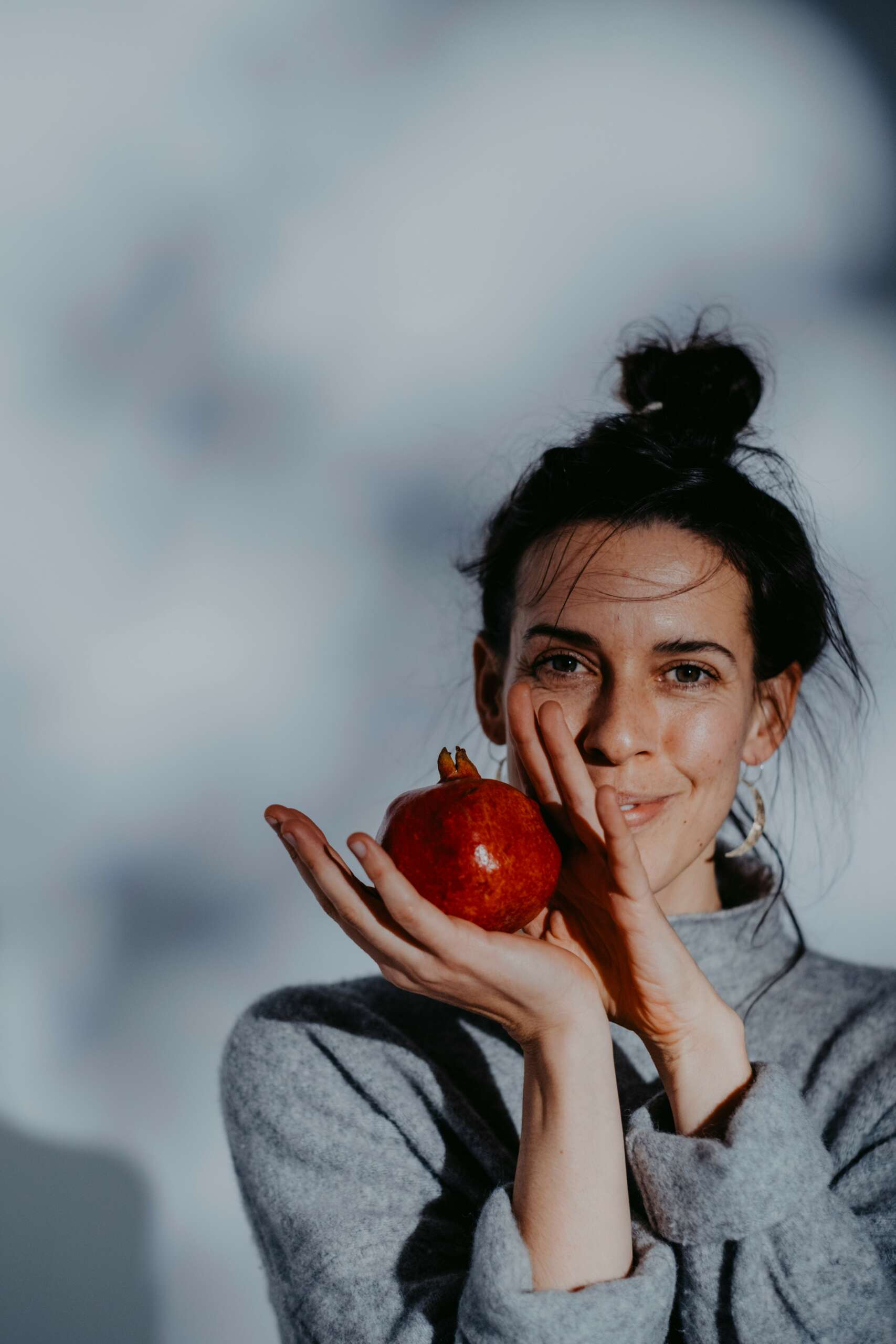
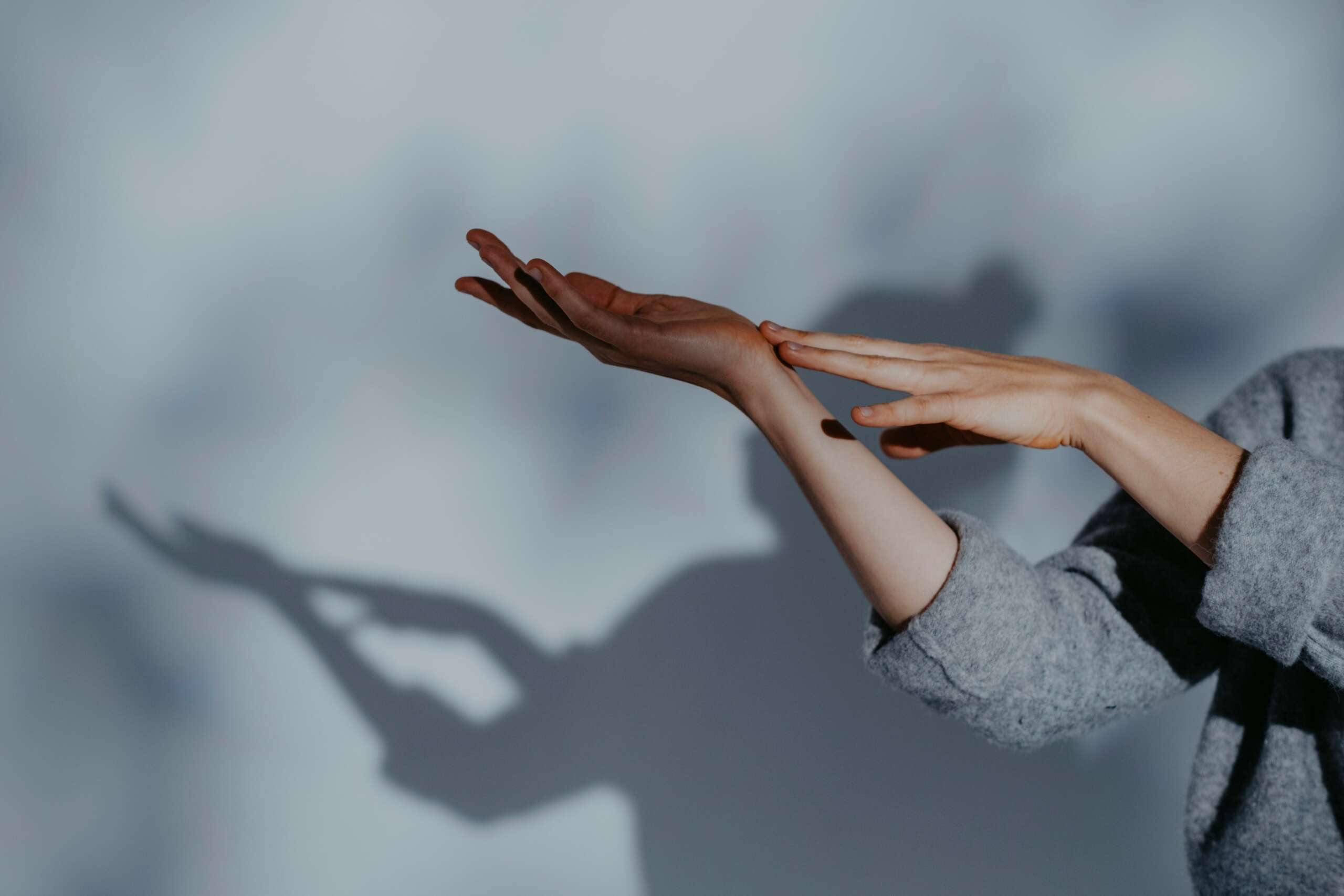
We often hear about learning lessons – but just as important is unlearning lessons. Have you ever had to unlearn a lesson?
I’ve always wondered how the words SHAME and SHAMAN sound so terribly similar. I am an academic and a shaman. I read the news, I read scientific papers, and I read Tarot. I observe my Instagram feed as passionately as I observe the cyclic rhythm of the planets. I am equally interested in the recent academic discourse, the latest fashion trend, and the current flow of my breath.
I am a thinker, and I am a feeler. A mover and a believer, too. In other words: I’m human. In my work I try to reconnect the spheres of mind, body, heart, and energy. On my journey towards this practice of comprehensive connection, Shame has been a constant and very unloved companion.
It came up every time I introduced myself and named my profession.
For years I’ve struggled with this feeling, trying in vain to somehow shrug it off. I was only able to apprehend my chronic malaise when I read Brené Brown’s book Dare to Lead. Through her, I understood that shame is the feeling of “never being good enough” that is accompanied by an acute and heavy fear of being expelled from the community.
You see, in a way, I am what I am despite myself. Despite my doubts and prejudices. Despite my upbringing, my formation, and my shame. After I realized that I have specific sensitivity to what we call “energies,” it took me years to commit to my talent, and I could only do so when I finally found a training place that looked school-like enough for me to enroll. I wanted white walls, neon lamps, schedules, and certificates. I wanted to feel safe, and I wanted to feel legitimate.
The awful truth is that as long as we stick with the prevalent scientific standards our emotional, intuitive, or energetic intelligence will never be good enough. These precious resources remain—at least to some extent—unpredictable, unreproducible, individual, erratic, and surprising. Therefore, committing to them makes us feel vulnerable and has us fear the excommunication from academia or other professional environments. With dramatic effects.
For shame is not just an unwelcome feeling or a personal issue. It’s a cultural condition with severe consequences: Shame is the ultimate showstopper, the thing that gets in the way of integral growth and true innovation—both individually and collectively.
If we want to further the reintegration of previously exiled aspects of our nature, we must eventually deal with our shame. Brown offers hands-on recipes to build cultures that are resilient in the face of shame. In all of them communication is key. She explains how shame is growing and thickening into silence. To dissolve it we must courageously address it.
So, this is my lesson and my invitation: Shame. Let’s not just feel it. Let’s talk about it and get shameless.
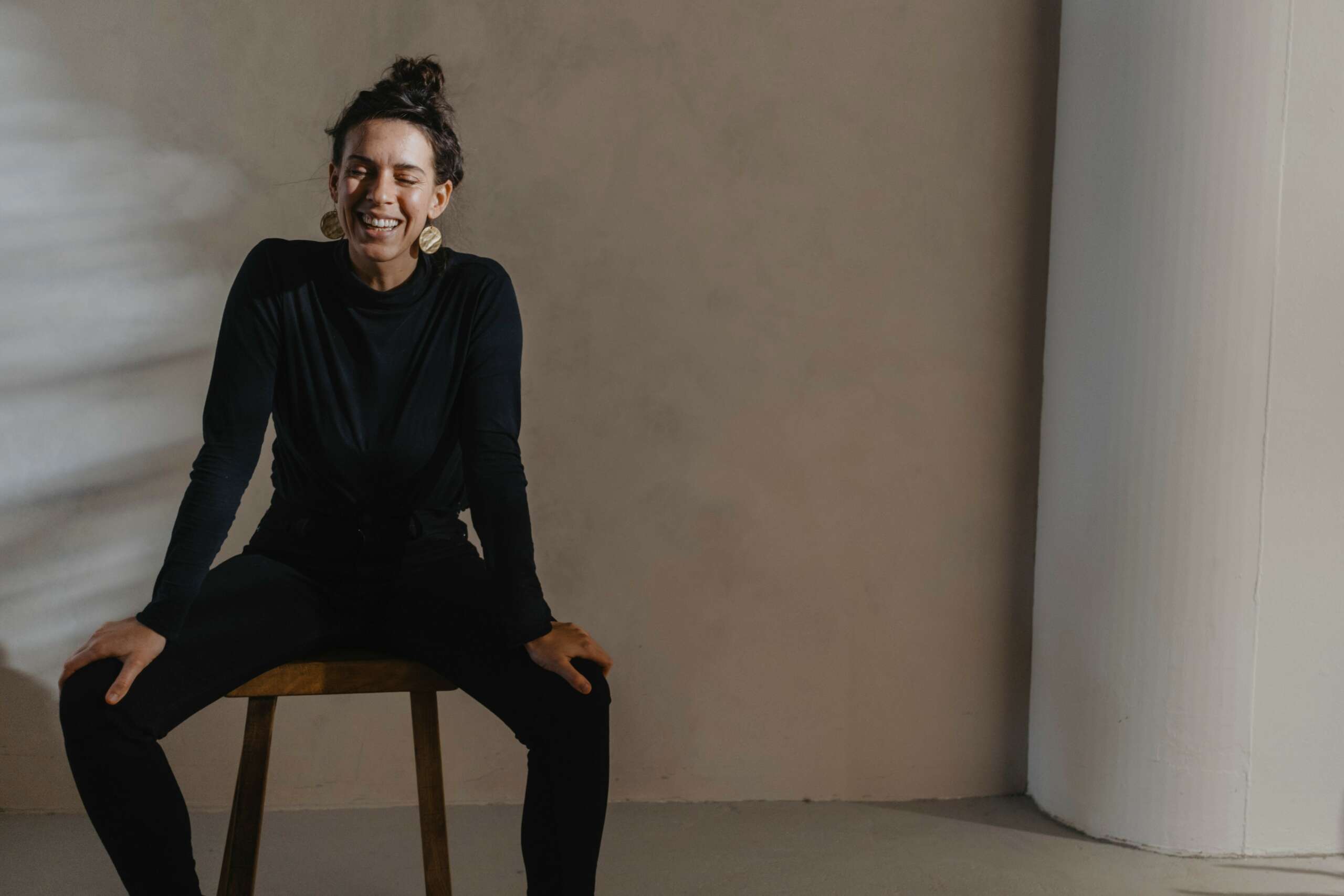
Are there any books, videos or other content that you feel have meaningfully impacted your thinking?
Books have been a constant companion and important support on my journey. My classes on leadership and innovation owe a lot to Brené Brown’s research and writing (my favorite is: Dare to Lead) and Nicholas Janni’s recent publication “Leader as Healer” in which I underlined practically every sentence.
As much as these two thought-leaders influenced my work, I still think that the most important author in my life is Peter Hoeg whom most people know for his bestseller “Miss Smilla’s Feeling for Snow”. In other novels such as “The quiet girl” or “the Susan Effect” he portrays women that serve as deeply inspiring role models for me since they unapologetically embrace the vast ambivalences of our human existence.
They are both academics and fashion victims, spiritual and materialistic, reckless, and kind. With their highly articulated intelligence and well-developed sensuality, they will indulge in the beauty of a mathematical axiom just as much as in the rich experience of a carefully created meal.
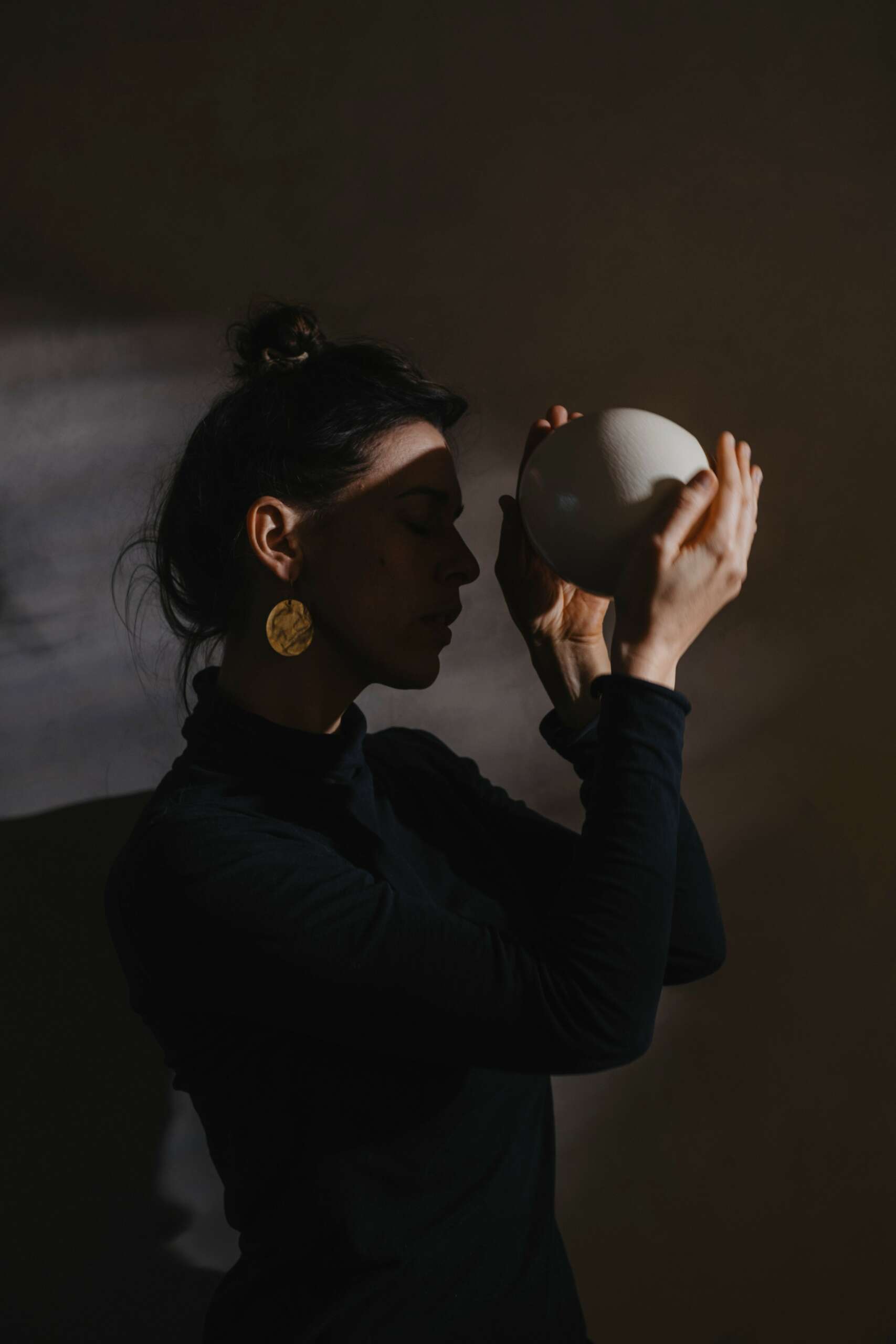
Contact Info:
- Website: www.insa-verbeck.com
- Instagram: @insa_verbeck
- Linkedin: https://www.linkedin.com/in/insa-verbeck-255180227/
Image Credits
Anna Roters


